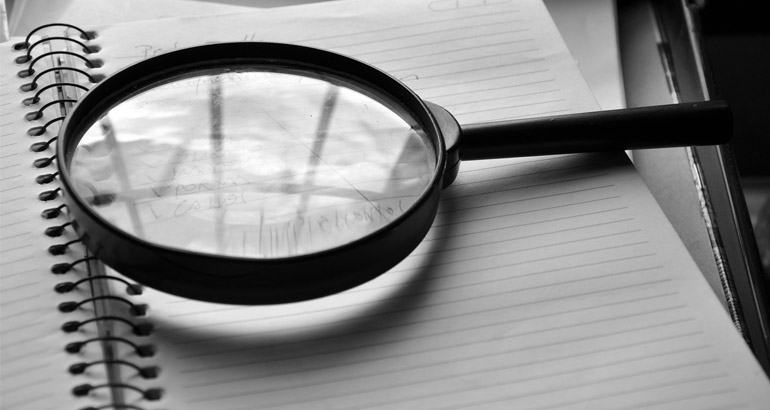A Guide to Audit Evidence

An audit is a systematic free assessment of financial proclamations, records, reports with a goal to communicate a conclusion on the financial articulations of an entity whether they are giving a valid and reasonable view or not. The auditor expresses his decision (regardless of whether an entity’s financial explanations are providing a valid and reasonable view or not) based on audit evidence gathered by him.
Follow the guide if you need to avail company formation services or corporate finance services in Dubai.
[Read: Why Is Professional Audit Report Important for a Business?]
Audit Evidence and the Purposes of an Audit
The principle target of the work performed by the auditor in an audit commitment is that of acquiring sensible affirmation with regards to whether the financial articulations, overall, are liberated from material error so that the auditor can communicate a feeling on the financial explanations and report as needs be in the auditor’s report.
To acquire sensible affirmation about the financial articulations, which is a high yet not outright degree of confirmation, the auditor needs to plan and perform audit procedures to get adequate suitable audit evidence to have the option to make sensible inferences on which to base the auditor’s conclusion.
ISA (the UK and Ireland) 500, Audit Evidence, clarifies what the auditor’s obligations in acquiring audit evidence that can support the auditor’s supposition and what comprises adequate fitting audit evidence for such reason are.
Designing and accomplishing audit procedures for gaining audit evidence
Various ISAs (UK and Ireland), in particular ISA 300, ISA 315, and ISA 330, require and clarify that audit evidence ought to be acquired by performing risk evaluation strategies and different audit methodologies. Further audit systems incorporate trial of controls and numerous processes, including the trial of details and meaningful analytical procedures.
Specifically, close by a general audit methodology that shows the extent of the work, the assets of staff allocated to particular areas, and the circumstance of the engagement, a more detailed audit plan ought to demonstrate the audit systems to be acted regarding explicit declarations in the financial proclamations and their planning.
The consequences of the underlying risk assessment techniques, similar to the element’s business risk assessment or the assessment of internal controls, are the premise of planning the nature, timing, and degree of additional audit methods to be acted regarding the risks distinguished.
Further audit methods ought to react to the evaluated risks of material misquote at the attestation level so that adequate fitting evidence can be gotten regarding those risks.
Follow the guide to avail Audit & Assurance Services in Dubai.
Essentials of Good Audit Evidence
- Adequate: Sufficiency is the proportion of the amount. Audit evidence is sufficient when they are accessible in a satisfactory amount. An auditor applies distinctive audit techniques to get enough audit evidence like test checking.
- Reliable: Evidence acquired by the auditor is influential as opposed to decisive. We can’t consider such evidence 100% solid for shaping perception. The dependability of audit evidence relies upon its source and nature of such evidence.
- Source: Audit evidence acquired inside the undertaking is known as the internal source. Evidence obtained from an external endeavor like an affirmation from the outsider is known as the external source. We believe the external source to be more dependable.
- Nature: Can be narrative (like bills, vouchers), visual (like the physical check of fixed resources), or oral (affirmation from representatives)
- Relevant: Whether the auditor’s audit evidence is essential or not relies upon the reason for audit techniques.
There are few thumb rules which helps in recognizing the suitability of evidence:
- Written evidence is superior to testimonial evidence.
- Evidence from external sources is more substantial.
- Unique records are ideal over their copies.
- The auditor ought to have a decent comprehension of the association’s internal control as it empowers him to get relevant evidence.
- Evidence acquired by the auditor through direct perception, examination, physical confirmation, and calculations is superior to the evidence obtained in a roundabout way.
The Essential Factors That an Auditor Needs to Consider While Obtaining Evidence
Some significant elements to consider while acquiring evidence are as per the following:
- Nature of evidence (its importance, unwavering quality, and propriety)
- The materiality of evidence, their importance
- Regardless of whether there is a prerequisite of an audit level of affirmation (high) or a survey level of confirmation (moderate).
- The risk associated with making an erroneous conclusion
[Read: Modern Audit Techniques and Tools for Audit.]
Conclusion
Proposing to give our regarded customers the best auditing answers, we at JAXA Chartered Accountants are here to direct you and assist you in sorting your business records. Our audit specialists step up to understand your business necessities and give custom-made arrangements viably. They hold industry experience and subsequently put forth an attempt to comprehend the business needs adequately. In case you intend to begin the audit cycle in your business element, do have a word with our specialists. Contact us today. We’d be happy to help.